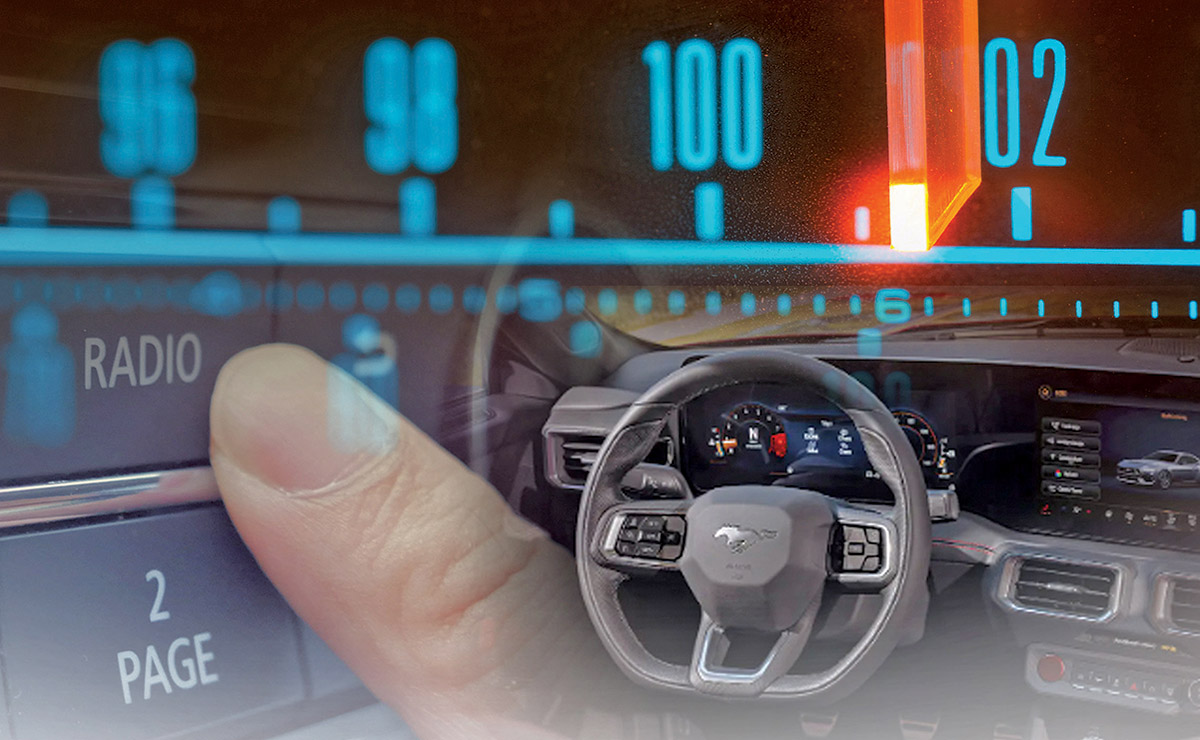<!–*/ */ /*–>*/
| Inside the fight over AM radio in EVs |

Once at the center of American life, AM radio stands in the middle of a tussle between automakers who want it gone to save money and avoid noisy interference in electric vehicles, and federal lawmakers who say it is key for emergency alerts during catastrophes.
BMW, Mazda, Polestar, Rivian, Tesla, Volkswagen and Volvo do not offer broadcast AM radio in their electric vehicles, citing the EV motor’s electromagnetic interference with the AM system and a resulting ticking sound. About a third of all new EV models available for purchase in the United States in 2023 are not equipped with an AM tuner, according to SBD Automotive, a global automotive technology research firm.
Automakers are dumping AM radio as they face immense pressure to cut costs, reduce complexity and increase EV efficiency, even marginally. Competition is fierce and companies are struggling to make money on electric vehicles under $70,000. They also cite little AM radio use by new-car buyers.
An AM tuner adds from $20 to $30 to a vehicle’s bill of materials, according to SBD Automotive. Automakers want to slash spending where they can as they divert capital to new EV models and driver-assist technology.
“They are going to leave no stone unturned,” said Eric Noble, president of consulting firm The CARLAB. “They’re going to look to pull costs out anywhere they can.”
But this retro technology might be here to stay. The Federal Emergency Management Agency provides some radio stations, most of them AM, with backup communications equipment and power generators so they can broadcast alerts “under all conditions,” even if other systems, from social media to TV, fail.
Legislators have introduced a bill that would require AM radio to remain in vehicles to ensure drivers have access to hardened emergency alert systems. AM radio reaches about 45 million listeners each month in the U.S., compared with 231 million listeners for FM, according to Nielsen ratings.
—Molly Boigon
What you need to know
Redwood Materials races to put recycled materials into EV batteries: The battery recycler plans to produce materials that could help power up to 1 million electric vehicles within the next five years.
Digital car keys raise security concerns: Mobile phone-based automotive digital keys are the future of the software-defined car. Automotive cybersecurity experts, however, are still working to determine if digital keys are as secure as the industry claims.
Consumer Reports campaigns for free crash notification feature in all new vehicles: More than 20,000 consumers signed the organization’s safety petition in its first three days.

Roundup
Volvo guns for Gen Z with budget-priced electric crossover.
Lesson learned: Audi Q8 E-tron addresses issues that held first-gen EV back.
Rivian cancels ‘tank turn’ feature to prevent trail abuse.
Safety group calls for bicycle detection in automatic braking rule.
NHTSA wants automation to cut 24,000 road injuries a year.
China’s EV battery sector is preparing a new energy density breakthrough.
Troubled EV startup Faraday Future prices FF 91 crossover at $309,000.